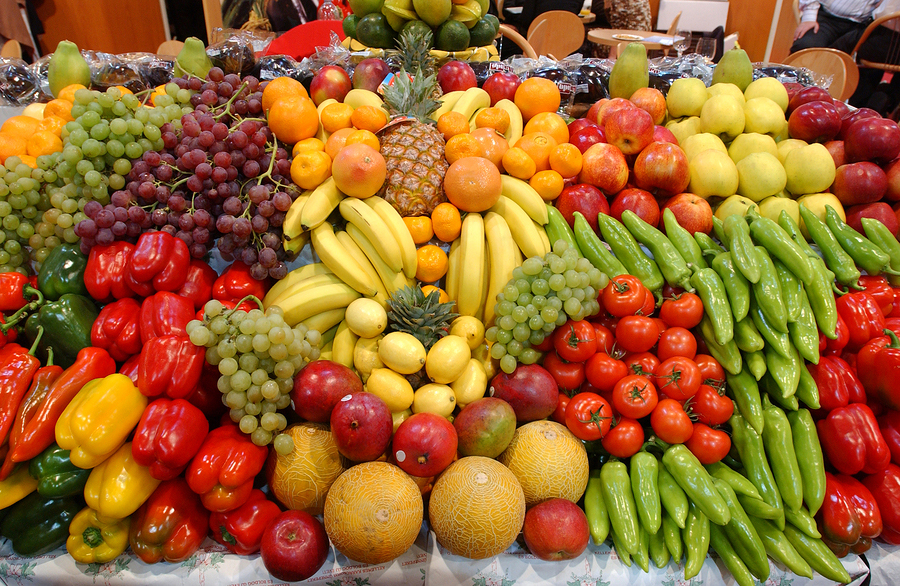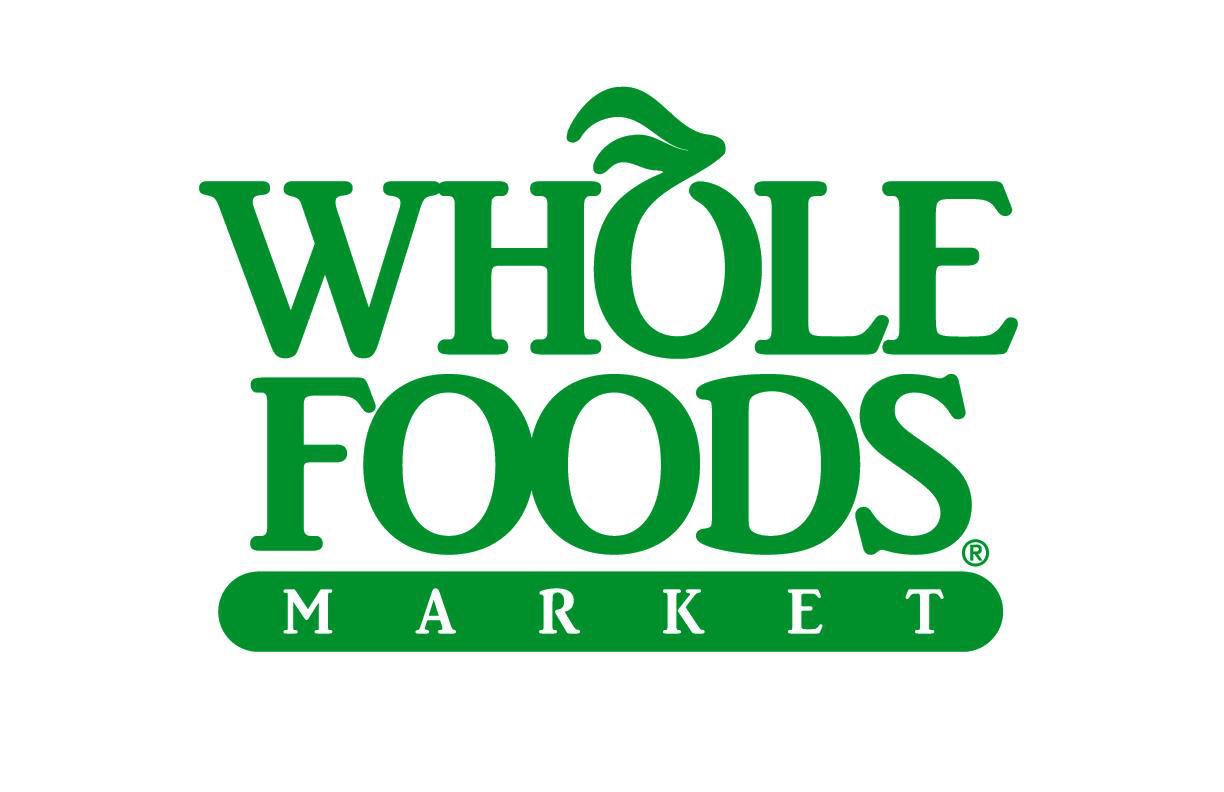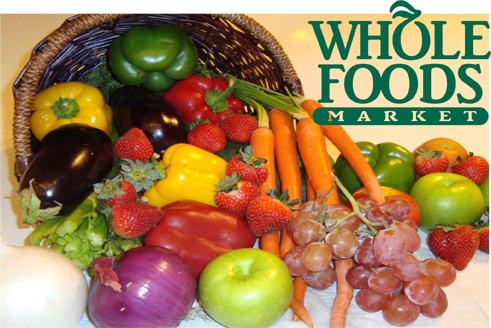GMO Food Labeling
Air Date: Week of March 15, 2013

By 2018 food sold at Whole Foods Market will require labeling if it has genetically modified ingredients. (Bigstockphoto.com)
From 2018 Whole Foods Market will require labeling for all genetically modified ingredients on products sold in its stores. Whole Foods’ Margaret Wittenberg tells host Steve Curwood that the grocery chain wants to give customers full information to make their own decisions.
Transcript
CURWOOD: Starting in 2018, Whole Foods Market will require its suppliers to label all products that contain genetically modified ingredients. The move comes in the wake of a failed effort to pass a ballot initiative last year in California that would have required the labeling of GM products. To explain the decision, we're joined by Whole Foods' Global Vice President of Quality Standards and Public Affairs, Margaret Wittenberg.

(Whole Foods Market)

(Whole Foods Market)
WITTENBERG: For us it's all about choice, the right to know. We work so hard on trying to have transparency in many other product areas that we have in the store, be it seafood or cleaning products, meat, whatever, and this is just going along with that; the transparency in letting the consumer make the decisions on what they want to have. Whether they are in favor of GMOs or not in favor of GMOs, labeling will be fine for everyone.

Margaret Wittenberg, Global Vice President, Whole Foods Market
(Photo: Whole Foods)
CURWOOD: Right now, if I walk into a Whole Foods market, am I able to purchase a product that has GMO ingredients?
WITTENBERG: What we tell people right now is that no grocery store can guarantee GMOs are not in their store on non-organic products. So what we tell people now, if you’re concerned about GMOs, look for organic, and also look for the non-GMO project verified products. Beyond that, we can’t guarantee it.
CURWOOD: We asked Louis Finkel of the Grocery Manufacturers Association to come on the program. He declined, but gave us this statement. I’d like you to respond to it. “GMA opposes special labeling for food products containing genetically modified ingredients because these labels could mislead consumers into believing that those food products are somehow different or present a special risk or potential hazard. US Food and Drug Administration,” that’s the FDA, “and numerous regulatory and scientific bodies including the World Health Organization, The Food and Agricultural Organization of the UN and the American Medical Association have all concluded that these products are safe. They are materially no different than products that do not contain genetically modified ingredients.” How do you respond?
WITTENBERG: Again, it’s all about choice in marketplace. We believe it’s just the right thing to do. If customers are just asking for - and this is just going along with how we’ve always advocated for transparency of information and products in our store - this is just the right thing to do for us.
CURWOOD: Whole Foods has a reputation for not selling products that many other chains would sell, for example, this is unacceptable for Whole Foods Market, the products containing high fructose corn syrup, or artificial sweeteners such as Saccharine or Aspartame. What does Whole Foods believe that causes you to have that policy?
WITTENBERG: When we opened our doors in September 1980, we started with no artificial flavors, colors and preservatives. And when we did that it was at the time when there were more products coming out of the marketplace that were fitting that bill. And we believe it's really important for our consumers to have access to good quality food, food that does not contain artificial flavors, colors and preservatives. And that has been what our consumers have banked on us for doing, and you know, those of us who work here want that in our own diets as well. So we provide an alternative for consumers who are interested in it, and with our success it’s clear that this is what consumers want.
CURWOOD: How do you think this is going to affect your suppliers who do use GMO sources?
WITTENBERG: Well, we have many who are on their way to sourcing from non-GMO verified sources, along with those who are 100 percent organic. Suppliers are going to have to ask deeper questions about their ingredients, but when we made this announcement last week, at a big supplier meeting, we got quite an ovation from them - which tells me that they really share in that sentiment of a consumer’s right to know.
CURWOOD: What’s been the response so far to your announcement?
WITTENBERG: Oh, just ecstatic! It’s really hit a chord with consumers. I think over the years with the people trying to advocate with the FDA, and having many many petitions that had thousands, even millions of signatures...and the FDA saying “no, no, no, we’re not going to do it.” This has just been an ecstatic response from our consumers knowing that finally, they’re going to be able to make a choice.
CURWOOD: Margaret Wittenberg is Global Vice President of Quality Standards and Public Affairs for Whole Foods. Thank you so much for taking the time, Margaret.
WITTENBERG: You bet. My pleasure. Thank you.
Links
Whole Foods Market Statement on GMO labeling
More about Margaret Wittenberg of Whole Foods Market
Living on Earth wants to hear from you!
Living on Earth
62 Calef Highway, Suite 212
Lee, NH 03861
Telephone: 617-287-4121
E-mail: comments@loe.org
Newsletter [Click here]
Donate to Living on Earth!
Living on Earth is an independent media program and relies entirely on contributions from listeners and institutions supporting public service. Please donate now to preserve an independent environmental voice.
NewsletterLiving on Earth offers a weekly delivery of the show's rundown to your mailbox. Sign up for our newsletter today!
 Sailors For The Sea: Be the change you want to sea.
Sailors For The Sea: Be the change you want to sea.
 The Grantham Foundation for the Protection of the Environment: Committed to protecting and improving the health of the global environment.
The Grantham Foundation for the Protection of the Environment: Committed to protecting and improving the health of the global environment.
 Contribute to Living on Earth and receive, as our gift to you, an archival print of one of Mark Seth Lender's extraordinary wildlife photographs. Follow the link to see Mark's current collection of photographs.
Contribute to Living on Earth and receive, as our gift to you, an archival print of one of Mark Seth Lender's extraordinary wildlife photographs. Follow the link to see Mark's current collection of photographs.
 Buy a signed copy of Mark Seth Lender's book Smeagull the Seagull & support Living on Earth
Buy a signed copy of Mark Seth Lender's book Smeagull the Seagull & support Living on Earth

